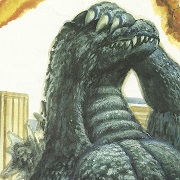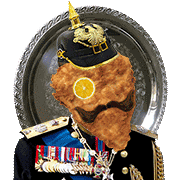|
Does anyone have a recommendation for a book on the Hellenistic Period and/or the Successor States?
|
|
|
|

|
| # ? May 14, 2024 13:13 |
|
Alexander to Actium is the first thing that comes to mind, not sure if there's something better written in the last 30 years
|
|
|
|
KomradeX posted:I'm looking for some books about Tbe Franklin Expedition and stuff about Artic and Anarctic exploration in general I recently read Madhouse at the End of the Earth by Julian Sancton and enjoyed it. Its about a Belgian Antarctic exhibition where they (surprise surprise) get stuck in the ice. Similar to Franklin's expedition but the Belgica made it out so there are a lot more primary sources in the form of diaries, photos etc.
|
|
|
|
KomradeX posted:I'm looking for some books about Tbe Franklin Expedition and stuff about Artic and Anarctic exploration in general I’d bet you’ve read it already but if not it’s hard to beat Lansing’s Endurance.
|
|
|
|
I'm currently reading "The Arabs: A History" by Eugene Rogan. Currently covered the period from 1516 to the fall of the Ottoman Empire in 1922. There were so many Arab revolts against the Ottomans that I wasn't aware of, and lots of interesting characters I'd never heard of.
|
|
|
|
KomradeX posted:I'm looking for some books about Tbe Franklin Expedition and stuff about Artic and Anarctic exploration in general I really enjoyed Erebus: One Ship, Two Epic Voyages, and the Greatest Naval Mystery of All Time by Michael Palin (Also published some places as just Erebus: The Story of a Ship, for some reason) when I read it. It's fairly recent and easy to read, but I will warn it's mostly about the expedition BEFORE the Franklin debacle (which is still really interesting!) For general Arctic/Antarctic, I also liked: Icebound: Shipwrecked at the Edge of the World by Andrea Pitzer -- it's about a 16th century Dutch expedition to discover a Northeast passage over Russia to trade with China The Endurance: Shackleton's Legendary Antarctic Expedition by Caroline Alexander -- it's got a lot of great surviving photos from the expedition in it Madhouse at the End of the Earth: The Belgica's Journey Into the Dark Antarctic Night by Julian Sancton -- about the first ship to overwinter in the Antarctic successfully The Great White South: Traveling with Robert F. Scott's Doomed South Pole Expedition by Herbert Ponting -- this is a memoir by the official photographer of the expedition. Lots of neat details about day-to-day life, but he's sort of whiney sometimes and won't shut up about that one time he went to Japan (it's sort of charming and annoying at the same time)
|
|
|
|
feldhase posted:Does anyone have a recommendation for a book on the Hellenistic Period and/or the Successor States? Ghost on the Throne by James Romm is about the direct aftermath of Alexander's death and his generals trying and not trying to keep things together. I'm also currently reading Philip Matyszak's Greece against Rome, which has more of a focus on the decline of the Successor States and their conflicts with Rome, but there's plenty of inter-Successor wars and intrigue in there to be interesting.
|
|
|
|
Shivers posted:Ghost on the Throne by James Romm is about the direct aftermath of Alexander's death and his generals trying and not trying to keep things together. I listened to this audiobook last year back to back with Adrian Goldsworthy's book on Philip and Alexander and quite enjoyed it but was left wanting more. People in this thread recommended the Alexander to Actium book that PittTheElder mentioned above, as well Dividing the Spoils by Robin Waterfield. I haven't gotten around to reading them myself yet, too much of a backlog and I sort of forgot about it.
|
|
|
|
vyelkin posted:If you want a thick expensive in-depth textbook, Ronald Grigor Suny's The Soviet Experiment. If you want a short, readable, cheap survey, Sheila Fitzpatrick's The Shortest History of the Soviet Union. I will look. Leaning towards Suny. Thanks.
|
|
|
|
quote:The King’s most famous obsession was his collection of giants, for which he was renowned throughout Europe. Known as the Blue Prussians or the Giants of Potsdam, there were over 1,200 of them, organized into two battalions of 600 men each. None was under six feet tall, and some, in the special Red Unit of the First Battalion, were almost seven feet tall. The King dressed them in blue jackets with gold trim and scarlet lapels, scarlet trousers, white stockings, black shoes and tall red hats. He gave them muskets, white bandoleers and small daggers, and he played with them as a child would with enormous living toys. No expense was too great for this hobby, and Frederick William spent millions to recruit and equip his giant grenadiers. They were hired or bought all over Europe; especially desirable specimens, refusing the offer of the King’s recruiting agents, were simply kidnapped. Eventually, recruiting in this way became too expensive—one seven-foot-two-inch Irishman cost over 6,000 pounds—and Frederick William tried to breed giants. Every tall man in his realm was forced to marry a tall woman. The drawback was that the King had to wait fifteen to twenty years for the products of these unions to mature, and often as not a boy or girl of normal height resulted. The easiest method of obtaining giants was to receive them as gifts. Foreign ambassadors advised their masters that the way to find favor with the King of Prussia was to send him giants. Peter especially appreciated his fellow sovereign’s interest in nature’s curios, and Russia supplied the Prussian King with fifty new giants every year. (Once, when Peter recalled some of the Russian giants lent to Frederick William and replaced them with men who were a trifle shorter, the King was so upset that he could not discuss business with the Russian ambassador; the wound in his heart, he said, was still too raw.)
|
|
|
|
FPyat posted:Fred I's gigantophilia. I remember reading a story about his son (the eventual Frederick the Great) attempting to kidnap a very tall shepherd but the guy dying in transit. His father still gave him credit for trying, which is one way to instill daring, I suppose.
|
|
|
|
PittTheElder posted:Alexander to Actium is the first thing that comes to mind, not sure if there's something better written in the last 30 years It remains the definitive text on the period, but its also about a thousand pages, so its not for the faint of heart. Also, since no one has mentioned a recommendation for Ptolemaic Egypt, I'd suggest The Last Pharaohs: Egypt Under the Ptolemies by J. G. Manning for Hellenistic Egypt. Edit: Also, if you're into Economic History, J. G. Manning also has a great book about the Economic history of the Eastern Mediterranean World in the mid 1st millennium BC before the rise of Rome, which covers a lot of stuff about the Hellenistic Period, called The Open Sea CrypticFox fucked around with this message at 04:37 on Mar 7, 2023 |
|
|
|
Thanks for all the recommendations! Alexander to Actium sounds really good and I’ll look into the others as well!
|
|
|
|
Yeah those are going on the list for me since I've always wondered things like: "Why did Mithridates think he had a chance against rome?" 
|
|
|
|
Finished Shattered Sword. Complete banger and the appendix is like 150 pages long of extremely detailed charts and illustrations. 
|
|
|
|
Behemuff posted:I recently read Madhouse at the End of the Earth by Julian Sancton and enjoyed it. Its about a Belgian Antarctic exhibition where they (surprise surprise) get stuck in the ice. Similar to Franklin's expedition but the Belgica made it out so there are a lot more primary sources in the form of diaries, photos etc. Kalman posted:I’d bet you’ve read it already but if not it’s hard to beat Lansing’s Endurance. DurianGray posted:I really enjoyed Erebus: One Ship, Two Epic Voyages, and the Greatest Naval Mystery of All Time by Michael Palin (Also published some places as just Erebus: The Story of a Ship, for some reason) when I read it. It's fairly recent and easy to read, but I will warn it's mostly about the expedition BEFORE the Franklin debacle (which is still really interesting!) Thank you guys these all look like great places to start
|
|
|
|
Finished Wedgwood’s Thirty Years War and it’s one of the best history books I’ve ever read. Started the audiobook but quickly started over in print.
|
|
|
|
Fate Accomplice posted:Finished Wedgwood’s Thirty Years War and it’s one of the best history books I’ve ever read. I’m about 40% through it and downright angry that I haven’t read it before. It’s very good.
|
|
|
|
Wedgwood also has a series on the English Civil War which is p. good.
|
|
|
|
And pretty good tableware
|
|
|
|
The Third Reich in Power is drat bleak, simply disheartening. Maybe it's a stupid thing to say.
|
|
|
|
FPyat posted:The Third Reich in Power is drat bleak, simply disheartening. Maybe it's a stupid thing to say. We’re all still waiting on a happy, uplifting book about nazis
|
|
|
|
I think wages of destruction might be the maddest I've been at a historical narrative. Since Tooze was going through the exact mechanisms of how the nazis sucked Europe dry.
|
|
|
|
Melita, an ordinary German, after the war posted:‘The anti-semitism of my parents was a part of their outlook which was taken for granted . . . One was friendly with individual Jews whom one liked, just as one was friendly as a Protestant with individual Catholics. But while it occurred to nobody to be ideologically hostile to the Catholics, one was, utterly, to the Jews . . . In preaching that all the misery of the nations was due to the Jews or that the Jewish spirit was seditious and Jewish blood compelled you to think of old Herr Lewy or Rosel Cohn: I thought only of the bogey-man, ‘the Jew’. And when I heard that the Jews were being driven from their professions and homes and imprisoned in ghettos, the points switched automatically in my mind to steer me round the thought that such a fate could also overtake you or old Lewy. It was only the Jew who was being persecuted and ‘made harmless’. Incredibly chilling stuff. The mind has no trouble dancing around any moral implications or consequences that might be inconvenient.
|
|
|
|
Halfway through Postwar. In his hatred for modernist architecture, he mocks the Ronan Point apartment block for its deadly collapse. Feels like a blot on an otherwise very compassionate book.
|
|
|
|
FPyat posted:Incredibly chilling stuff. The mind has no trouble dancing around any moral implications or consequences that might be inconvenient. The entire Evans’ trilogy is a huge condemnation of the ordinary German
|
|
|
|
Tony Judt posted:The low standing of public figures offered rich pickings to weekly television shows like Spitting Image or France's Bebete Show, where leading politicians were routinely held up to a degree of ridicule and scorn that would have been unthinkable a few years before (and still is in the United States). I suppose a lot has changed between Bush and Obama. Tony Judt posted:...whereas Margaret Thatcher believed in privatization as something akin to a moral good, Tony Blair just likes rich people. FPyat fucked around with this message at 09:27 on Mar 30, 2023 |
|
|
|
Anyone know of a book about Japan in the Meiji era that goes in depth about the life of the average person?
|
|
|
|
Any good books on the whole Militia Movement in the 90s, Waco, Ruby Ridge, Oklahoma City Bombing that kinda stuff?
|
|
|
|
Try Bring The War Home by Kathleen Belew.
|
|
|
|
almost done with Eric Foner's book on Reconstruction. I am feeling rather devastated. an important read for those like me who had a [scene missing] gap in knowledge about the post-Civil War era, whether due to poor public education or me sleeping in class (both may be partly to blame). the book got me thinking about horrible SCOTUS decisions. are there any good books with an overview/analysis of some of the biggest Supreme Court cases in U.S. history?
|
|
|
|
Mokelumne Trekka posted:almost done with Eric Foner's book on Reconstruction. I am feeling rather devastated. an important read for those like me who had a [scene missing] gap in knowledge about the post-Civil War era, whether due to poor public education or me sleeping in class (both may be partly to blame). Not a book, but the 5-4 podcast is an extremely good overview of major SCOTUS cases. They mainly focus on 20th century cases but occasionally dip back further. I can also recommend Blessings of Liberty by Benedict. I know the title makes it sound like a jerkoff book, but it's actually a quite even handed overview of constitutional history. It's really good at showing how constitutional interpretation has shifted to respond to the politics of the day, from the early days when all the cases were about boring poo poo like building harbors and founding banks, to the Lochner era when the Reconsturction amendments were used to let corporations do whatever they want and the power of the contract was unimpeachable, to the hard fuckin swing in the Great Depression when they suddenly decided that actually minimum wage laws are legal and so on. It is a textbook though so it's stupid expensive.
|
|
|
|
Does anyone have recommendations for books about early 20th century art history movements? I'm particularly interested on the Vienna secessionists and the surrealists, but I'll take anything.
|
|
|
|
Mokelumne Trekka posted:almost done with Eric Foner's book on Reconstruction. I am feeling rather devastated. an important read for those like me who had a [scene missing] gap in knowledge about the post-Civil War era, whether due to poor public education or me sleeping in class (both may be partly to blame). Mark Tushnet’s “I Dissent” uses critical dissents in important cases as a lens to analyze those cases. (Make sure you get Tushnet’s and not the RBG one with the same name.) Anthony Lewis’ Make No Law is an excellent book covering the NY Times v Sullivan defamation case. Not sure if you’re looking for more of the former (one book looking at a number of cases) or the latter (books that cover specific cases in detail) - if the latter and there’s a specific case, lmk and I can probably recommend something.
|
|
|
|
Gripweed posted:Not a book, but the 5-4 podcast is an extremely good overview of major SCOTUS cases. They mainly focus on 20th century cases but occasionally dip back further. both the podcast and the book sound about right. I was recently thinking a lot about how constitutional interpretation bends in certain directions depending on the time - very interesting. book seems to be $30 used which isn't too bad Kalman posted:Not sure if you’re looking for more of the former (one book looking at a number of cases) or the latter (books that cover specific cases in detail) - if the latter and there’s a specific case, lmk and I can probably recommend something. Buck v. Bell? yikes. well, I'll hold that thought for now. I'll need an overview of a variety given how little I know
|
|
|
|
LionYeti posted:Any good books on the whole Militia Movement in the 90s, Waco, Ruby Ridge, Oklahoma City Bombing that kinda stuff? Try to Bring the War Home, as recommended by neongrey above, is a really good suggestion. In the past few months 3 books on koresh/waco have been released, I haven't read any of them but soon enough someone will write a review article. My suggestion is not an entire book, but the section in "The Realigners" by Timothy Shenk on Helen Chenoweth. Her congressional district included Ruby Ridge and she was something of the conduit of the militia movement to congress. Her pollster was also the one and only Kellyanne Conway. https://www.amazon.com/Realigners-Partisan-Political-Visionaries-Democracy/dp/0374138001
|
|
|
|
Mokelumne Trekka posted:both the podcast and the book sound about right. I was recently thinking a lot about how constitutional interpretation bends in certain directions depending on the time - very interesting. book seems to be $30 used which isn't too bad Tushnet’s written a bunch on constitutional interpretation and is generally very readable so you could do worse than his books (eg, A Court Divided on the Rehnquist court.). I’ll give some more thought to books that might do well in terms of a review of shifts in jurisprudential philosophy over time - less about specific cases and more about the rise and fall of different legal theories. quote:Buck v. Bell? yikes. well, I'll hold that thought for now. I'll need an overview of a variety given how little I know I haven’t read it so can’t vouch but the standard work on this is Lombardo’s “Three Generations, No Imbeciles”.
|
|
|
|
After briefly covering the Lewis and Clark Expedition, Empire of Liberty by Gordon S Wood detours into 18th century theories of environmental determinism and Thomas Jefferson's angry efforts to refute Buffon's theory of American climatic inferiority. A lot more fun than reading about class structures and political mores.
|
|
|
|
FPyat posted:After briefly covering the Lewis and Clark Expedition, Empire of Liberty by Gordon S Wood detours into 18th century theories of environmental determinism and Thomas Jefferson's angry efforts to refute Buffon's theory of American climatic inferiority. A lot more fun than reading about class structures and political mores. You might like Fossil Legends of the First Americans by Adrienne Mayor.
|
|
|
|

|
| # ? May 14, 2024 13:13 |
|
what's the best biography of martin luther
|
|
|






 Yes, it's like a lava lamp.
Yes, it's like a lava lamp.




































